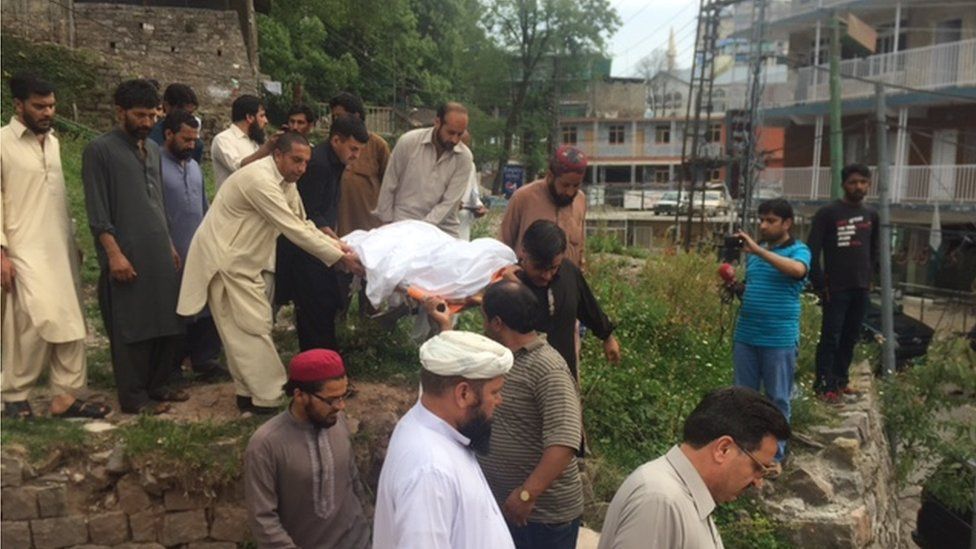Pakistan suspects held over killing of teacher who spurned suitor
- Published

Pakistani police have arrested the prime suspect in the case of a teacher burnt to death for spurning a suitor.
Maria Sadaqat, 19, was attacked in her home in Murree by a group of men on Sunday and later died in hospital.
The arrest of Shaukat Mahmood means all five suspects are now in custody. He is the owner of a school she had taught at. Her family allege she turned down his son's hand in marriage.
Attacks on women who refuse marriage proposals are common in Pakistan.
Mr Mahmood, who was held in Rawalpindi, was among three men arrested on Friday morning. Two others were taken into custody on Thursday.
According to Maria Sadaqat's family, the school owner's son is already married with a child and they refused the offer of marriage.
Police recorded a statement from Miss Sadaqat in hospital in Islamabad before she died on Wednesday.
She was beaten and doused in fuel before being set alight near the hill resort of Murree not far from the capital, police said.
Local media reported that she had 85% burns.
Violence against women is common in Pakistan and is often connected to a perceived slight or loss of honour, as is alleged to have occurred in Maria Sadaqat's case.
Often such violence goes unreported - and most of it takes place within the family.
In many cases - although not in Maria Sadaqat's - relatives hoping to keep the family name out of the news prefer to make out-of-court settlements.
Punjab province, where the attack on her happened, passed a landmark law in February criminalising all forms of violence against women.
However, more than 30 religious groups, including all the mainstream Islamic political parties, threatened to launch protests if the law was not repealed.
The Council of Islamic Ideology, which advises the government, proposed making it legal for husbands to "lightly beat" their wives. It came under fire as a result.
Religious groups have equated women's rights campaigns with promotion of obscenity.
- Published1 June 2016
- Published1 June 2016
- Published31 May 2016
- Published5 May 2016
- Published17 March 2016
- Published12 December 2014
- Published27 May 2014